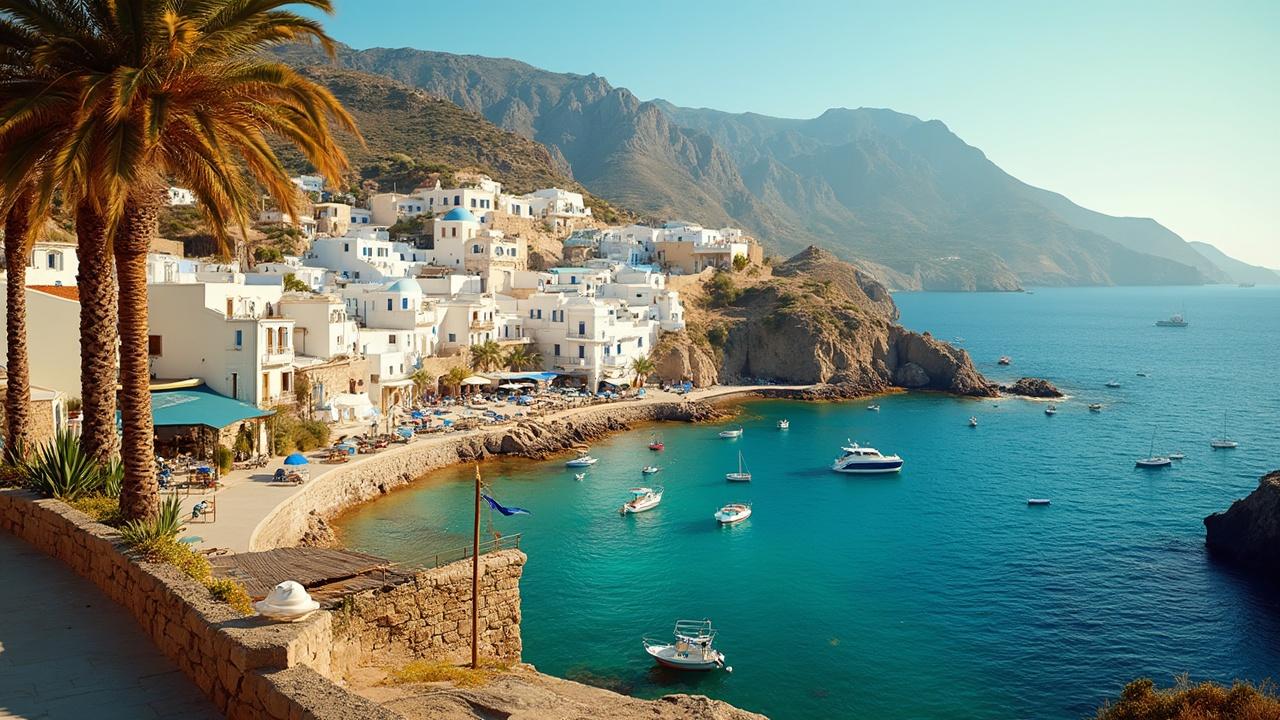As I sit here in my cozy Chiang Mai apartment, sipping on a steaming cup of Thai iced tea, my thoughts drift to the sun-drenched shores of Greece. Having explored this captivating country during various seasons, I’ve gathered some insider knowledge on the best time to visit Greece. Let me share my experiences and help you plan your perfect Greek getaway.
Unveiling the ideal seasons for your Greek adventure
Greece is a year-round destination, but certain periods offer unique advantages. In my travels, I’ve found that spring (April to June) and early fall (September to October) are the sweet spots for visiting this Mediterranean paradise.
During these months, you’ll enjoy:
- Pleasant temperatures perfect for sightseeing
- Fewer crowds at popular attractions
- Most destinations open and ready to welcome visitors
- Ideal conditions for outdoor activities and exploration
I’ll never forget my trek through the rugged Samaria Gorge in Crete one crisp May morning. The wildflowers were in full bloom, painting the landscape in vibrant hues. The comfortable weather made the 16-kilometer hike a breeze, and I had the trail almost to myself – a stark contrast to the bustling summer months.
If you’re a beach lover like me, you might be tempted by the allure of a Greek summer. While July and August offer perfect conditions for soaking up the sun, be prepared for:
- Scorching temperatures often exceeding 32°C (90°F)
- Crowded beaches and tourist hotspots
- Higher prices for accommodations and flights
That being said, summer is ideal if your heart is set on island-hopping and endless beach days. Just remember to pack your sunscreen and patience!
Navigating Greece’s seasonal nuances
As a digital nomad, I’ve learned to appreciate the ebb and flow of tourist seasons. Here’s a breakdown of what you can expect throughout the year:
| Season | Pros | Cons |
|---|---|---|
| Spring (April-June) | Mild weather, fewer crowds, wildflowers | Some island facilities may not be fully operational |
| Summer (July-August) | Perfect beach weather, lively atmosphere | Crowded, expensive, intense heat |
| Fall (September-October) | Warm sea, fewer tourists, lower prices | Some islands start to wind down operations |
| Winter (November-March) | Low prices, authentic local experiences | Cool weather, limited island access, some closures |
During my winter stay in Athens, I discovered a different side of Greece. The Acropolis, usually teeming with tourists, was peacefully quiet. I had the chance to explore the city’s cozy cafes and engage in deep conversations with locals. However, many island destinations were practically ghost towns, with limited ferry services and closed accommodations.
If you’re looking to maximize your budget, consider visiting during the shoulder seasons or winter months. You’ll find significantly lower prices for flights and hotels, especially from November to March. Just be prepared for cooler temperatures and the possibility of rain.

Tailoring your Greek odyssey to your interests
Your ideal time to visit Greece depends largely on what you want to experience. Here are some suggestions based on different travel styles:
For the culture vulture: Spring and fall offer the perfect conditions for exploring ancient ruins and museums without the summer crowds. The Athens and Epidaurus Festival, running from May to October, is a cultural feast not to be missed.
For the beach bum: July to September provides the warmest sea temperatures and guaranteed sunshine. I once spent a blissful week island-hopping in the Cyclades during August. The beaches were crowded, but the crystal-clear waters and vibrant nightlife made it worthwhile.
For the budget traveler: Aim for the shoulder seasons or winter months. Not only will you save money, but you’ll also get a more authentic glimpse of Greek life. I fondly remember a cozy December evening in a traditional taverna on Naxos, sharing ouzo and stories with the locals.
For the nature enthusiast: Spring is your best bet. The countryside bursts into bloom, and the mild weather is perfect for hiking and outdoor exploration. One April, I embarked on a wildflower photography expedition in the Pindus Mountains – an experience I’ll treasure forever.
Embracing the Greek spirit: festivals and events
To truly immerse yourself in Greek culture, consider planning your trip around one of the country’s vibrant festivals. Here are a few highlights:
- Greek Orthodox Easter: Usually falling in April, this is the biggest holiday in Greece. Witness candlelit processions, fireworks, and traditional feasts.
- Hellenic Festival: From June to September, Athens and Epidaurus come alive with performances of ancient Greek theater, music, and dance.
- Ohi Day: On October 28th, parades and festivities commemorate Greece’s refusal to surrender to Italian forces in 1940.
I’ll never forget celebrating Easter on the island of Corfu. The sight of thousands of clay pots being thrown from balconies on Holy Saturday was both bizarre and exhilarating – a perfect encapsulation of Greece’s unique charm.
In the end, the best time to visit Greece is when you can fully embrace its spirit of filoxenia (hospitality) and adventure. Whether you’re basking on a sun-soaked beach, exploring ancient ruins, or sharing a meal with new friends in a cozy taverna, Greece has something magical to offer in every season. So pack your bags, bring an open mind, and get ready for an unforgettable Mediterranean journey. Yamas! (Cheers!)

